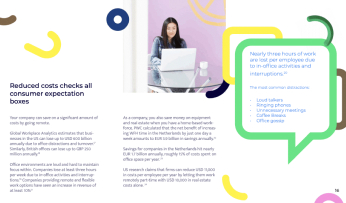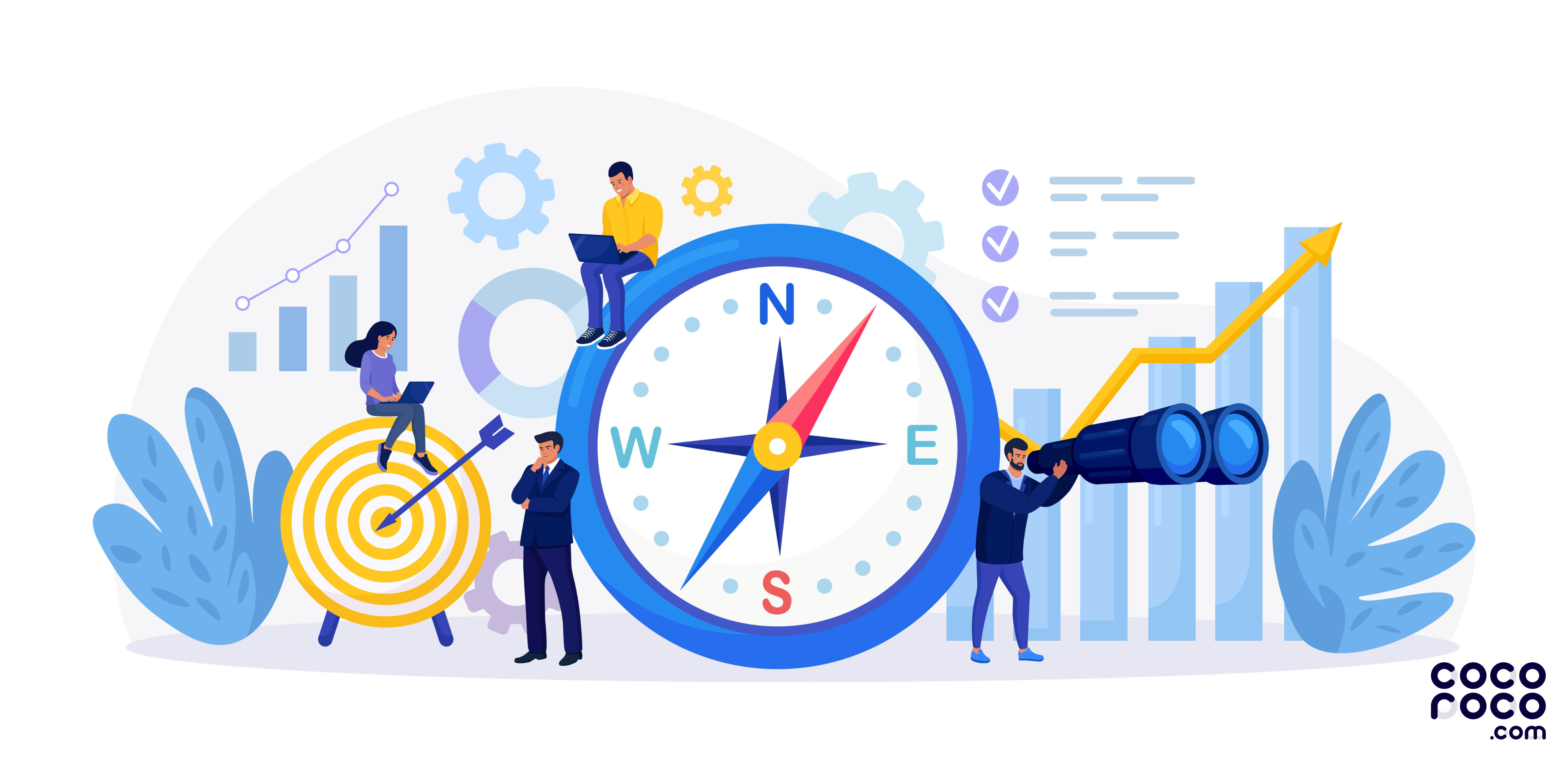What questions can you ask a customer to strengthen your existing relationships and attract new customers? And is asking questions an effective strategy for increasing retention and loyalty?
Of course, it is. Asking the right questions shows customers you care about their experience. It also gives you timely feedback that can improve your business deliverables in several ways.
The fruit of this labour is loyalty, word-of-mouth referrals, and increased business. But what types of questions can you ask a customer to ensure consistent organic growth and repeat purchases? Furthermore, how does asking a question give you a competitive advantage?
The advantages of asking questions
First, let’s look at how profitable customer feedback is for you. What types of questions can you ask a customer to benefit your business? Questions designed around collecting internal market research can be vital to your growth strategy. This tactic helps you develop and optimise new products that meet market demand.
Additionally, open-ended questions can monitor how customers feel about your service experience or brand deliverables. Data like this is invaluable in helping you craft unique and unforgettable customer experiences based on shared feedback.
Customer feedback surveys help you improve your service quality, and knowing what customers want from your service makes you better equipped to provide it.
Ultimately, asking the right questions earns you customer loyalty and organic referrals while boosting your bottom line with increased business from satisfied buyers. You’ll also discover what your audience wants and expects and close the gaps between expectation and fulfilment in your customer service, experience, and product.
How and when to ask relevant questions

Why should you depend on expensive market research firms for consulting advice when you can know what your customers are thinking directly? So what types of questions can you ask a customer that external agencies can’t? For a start, timely ones focused on your specific product and service brand.
The moment a customer has just ended an interaction with your business is the best time to ask for their feedback. The recent engagement with your brand is fresh on their mind, and that’s when customers are the most primed to respond honestly to your questions—even more so when their experience has been exceptionally good or somewhat disappointing.
What types of questions can you ask a customer at this moment to mine relevant and insightful data from their answers? Helpful questions can revolve around your product pricing, customer pain points, what’s stopping visitors from buying from you, and what your target market feels about your product or service.
Don’t be afraid to dig for more details when the feedback is negative, as negative feedback is a golden opportunity to correct faults and do better.
Three ways of asking questions
Consider how to ask your questions. The most common method to implement a customer survey is usually on your business’s website pages, social media channels, or email questionnaires. Each option depends on where customers are in the customer journey and help you effectively check if you’re in sync with customer needs. Let’s look at three ways in which you can ask questions.

Ratings-based questions
Ratings-based questions help you measure and track key performance indicators (KPIs) you may have defined for your business. They can give you crucial data at a glance, so you can see where your efforts need to be redirected to improve your products and services.
What types of questions can you ask a customer for ratings-based responses?
- Example: How would you rate the quality of our service? (1 = very dissatisfied; 5 = very satisfied)
Close-ended questions
Close-ended questions are straightforward questions that require respondents to choose from a list of answers or reply with Yes or No.
What types of questions can you ask a customer for close-ended responses?
- Example: What will you use this product for (Personal use / Commercial use / Both)
- Example: Was our solution helpful? (Yes/No)
Because such questions are simple to answer, they’re an excellent foot-in-the-door technique to make people willing to answer follow-up questions that are more open-ended or require lengthier replies.
Open-ended questions
Open-ended questions collect qualitative and insightful data from customers. Such questions allow customers to express their opinions and experience in their own words.
What types of questions can you ask a customer for open-ended responses?
- Example: What changes would you like to see in our product/service?
Listening to the voice of your consumers is undoubtedly one of the best ways to grow your business. But before you start asking questions, define your survey objective.
Are you trying to understand the user experience your website, product, or customer process is delivering? Do you want ideas to help you improve your marketing strategy? Are you looking for new service ideas to offer existing customers?
Knowing what your goals are will help you frame the right questions.
The importance of asking the right questions

What types of questions can you ask a customer to make them appreciate your brand and their experience with you?
First of all, avoid seeking obvious answers. Redundant questions are the ones for which you should already have the necessary data—like asking a customer when they first contacted you, the name of the agent they interacted with, or details of their previous complaint history.
Any halfway decent customer relationship management (CRM) system will give you this information without taxing your customer.
Believe it or not, most of your customers would prefer to avoid answering long-winded surveys or even taking a survey in the first place. On average, only 6% of customers take email surveys, with this going up to 8% on websites.
Most of your customers—like most of us—aren’t big survey fans. So, what types of questions can you ask a customer taking your survey?
First, remind yourself that these customers are doing you a favour by answering your questions. They deserve to have their time respected. Even more so because Harvard Business Review’s studies show that responsive customers are actually impacted by the type of survey questions they’re asked through a positive feedback loop with your brand. It’s your chance to make a lasting impression.
So asking the right questions matters a great deal. Here are ten questions you can ask your customers.
10 questions you should ask every customer

Prioritising customer feedback should be an essential part of your primary business strategy. What better way to improve your deliverables, products, and services than by asking customers what they need from you directly?
But to get quality feedback, you need quality questions. So, what types of questions can you ask a customer to bring you the honest responses you need to push your business to the next level? Let’s look at some good examples.
- How did you find out about us?
- Why did you choose us over another brand?
- What do you like most about our product/service?
- What can we do to make your experience better?
- Were we able to resolve your issue? (If no, why not?)
- Net Promoter Score (NPS) question: How likely are you to recommend our product?
- Customer Satisfaction (CSAT) question: How satisfied are you with our product/service?
- Customer Effort Score (CES) question: How easy did we make it for you to solve your issue?
- Customer Health Score (CHS) question: How likely are you to repeat your business with us?
- Agent quality review question: How would you rate your interaction with our service staff?
Bonus question: Is there anything you’d like to add? We appreciate your honesty and will use your feedback to improve our value to you.
Three easy steps to asking customers questions

We’ve already shared how customer surveys are a good way to get in touch with your clientele for quality feedback. But what’s the survey process, and how do you ensure it’s at the right place and time? Here are three easy steps:
Step One
Strategise your outreach initiative. What types of questions can you ask customers at each leg of their journey? How will your consequent survey questions differ, and to what end?
Will you use open-ended, ratings-based, or close-ended questions? Or a mix of all three? Will your survey consist of long multiple-choice questions or a short on-page poll? And what results do you hope to gain from the survey?
Step Two
Decide how, when, and where you want to reach your customers. For example, do you want to contact your customers online as soon as they’ve made a purchase? Will your survey be a live chat, forwarded via email, or will it be a website pop-up or a LinkedIn chat?
You may even want a physical survey kiosk outside your store or a mall. Would you prefer to conduct a live survey via the telephone, via video, or in person?
Step Three
Analyse the data you collect thoroughly. Open-ended answers can be assigned values for measuring results. Ratings or polls already provide the numbers to calculate customer satisfaction and other metrics.
Why talking to customers matters

Consider what questions you can ask a customer to build more trust in your brand. For example, is it to improve your service effort, promote sales, etc.?
You can create long-lasting relationships with your buyers by asking important questions at the right time. People like to feel cared for by the companies from which they purchase. When you ask about their feelings and opinions, customers feel valued. Your questions should show you care about their comfort and experience.
Asking questions also helps you clarify what’s not working within your consumer effort. You’ll also get immediate feedback on why a product or campaign wasn’t successful instead of delayed guesswork in an internal team meeting.
It also boosts customer retention by identifying at-risk customers who rate you negatively by sharing their complaints with you. Angry or upset customers are a timely opportunity for you to try and save the relationship. Think about what types of questions you can ask a dissatisfied customer because this is your chance to convert them to satisfied customers with a gesture of goodwill and extra care.
You can also reward loyalty by going all out to celebrate happy customers.
Finally, customer feedback can give you a competitive advantage in a crowded market. Honest feedback hands you the actionable insights you need to shape the future direction of your business growth and improvements.
Interested in hearing what your customers have to say? Providing them with expert and multilingual support is our speciality. Contact us at Cocoroco for more information on how we can help you take your customer service to the next level. Book a free demo to experience our world-class customer support solution today.










